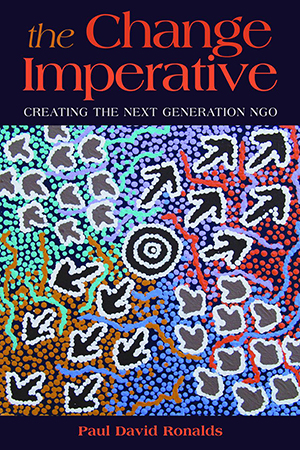Paul David Ronalds draws on his experience as deputy CEO of World Vision Australia to offer a practical guide for international nongovernmental organizations (INGOs) as they face the challenges of the Twenty-First century. Covering such concrete issues as advocacy, finance, technology, and human resources, as well as the more ambiguous areas of legitimacy and state sovereignty, his book is essential reading for both students and managers pursuing careers in aid organizations.
Paul David Ronalds is CEO of Save the Children Australia. His previous positions include service as first assistant secretary responsible for the Office of Work and Family in the Australian Department of Prime Minister and Cabinet, and he has also worked for World Vision Australia as deputy chief executive officer and director of strategy.
"Provides a well-founded introduction to what leadership and followership are likely to mean for a twenty-first century NGO. A required reading to add to the pile."—Alan Fowler, Development in Practice
"[A] thoughtful and intelligent analysis of the social, political, and economic trends shaping the role of international NGOs in the fight against poverty.... It concisely and convincingly makes the case for fundamental change in the way civil society organizes itself to meet the challenges of the 21st century." —Robert Glasser, CARE International
"The INGOs' role in global governance is too important to be allowed to ossify, atrophy, or diminish—change is an imperative. Paul Ronalds points the way forward."—Greg Bourne, WWF-Australia
"Richly informative, full of useful facts and figures, and an incisive and clear-headed analysis for any NGO leader wanting to understand the rising trajectory of NGOs over the last twenty years, the trends affecting NGOs in the coming decades, and what needs to be done to ensure that NGOs remain relevant to their mission."—Marc Purcell, Australian Council for International Development






